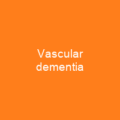Dementia: A Comprehensive Overview
Imagine your mind slowly slipping away, like a precious book with its pages turning yellow and crinkling under your fingers. That’s what dementia feels like to those who experience it and their loved ones. Dementia is not just one condition but a syndrome associated with neurodegenerative diseases that significantly impair cognitive abilities, affecting everyday activities.
Understanding the Symptoms
Memory impairment, emotional problems, language difficulties, and decreased motivation are some of the hallmark symptoms of dementia. These changes can be subtle at first but gradually worsen over time. Have you ever found yourself struggling to recall a familiar name or place? That could be an early sign of something more serious.
Causes and Subtypes
Dementia can stem from various factors, including Alzheimer’s disease, stroke, brain injuries, and misfolded proteins. There are several subtypes based on the underlying pathology, each with its own unique set of challenges. For instance, Alzheimer’s disease accounts for 60-70% of dementia cases worldwide, characterized by short-term memory loss and difficulty in visuospatial functioning.
Diagnosis and Risk Factors
The diagnosis of dementia typically involves a combination of history taking, cognitive testing, and imaging. Blood tests may be conducted to rule out other possible causes that could be reversible. Aging, smoking, obesity, and certain medical conditions are significant risk factors for developing dementia.
Stages of Dementia
The course of dementia is often described in four stages: pre-dementia, early, middle, and late. Each stage brings its own set of challenges. The pre-clinical stage can be marked by sensory dysfunction, while the prodromal stage includes mild cognitive impairment (MCI) and mild behavioral impairment (MBI).
Treatment and Management
While there is no known cure for dementia, medications such as acetylcholinesterase inhibitors can provide minor benefits. Psychological and behavioral interventions, caregiver support, and lifestyle modifications are crucial in managing the condition.
The Role of Caregivers
Caregivers play a vital role in the lives of those with dementia. Simple measures such as talking to residents about their interests can significantly improve quality of life and reduce agitation and depression. Adult daycare centers, home care, and psychiatric nurses also provide specialized support.
Prevention and Risk Factors
Modifiable risk factors for Alzheimer’s disease include low social contact, high neuroticism, loneliness, and lack of cognitive stimulation. Physical inactivity and poor oral health are considered the two most modifiable risk factors for dementia.
Diet and Lifestyle
The Mediterranean diet appears to be more beneficial than the DASH diet in reducing cognitive decline and dementia risk. Olive oil may play an important role, while a gluten-free diet can alleviate symptoms of celiac disease or non-celiac gluten sensitivity.
Conclusion: A Call for Action
Dementia is a complex condition that affects millions worldwide. It’s not just about memory loss; it’s about the gradual erosion of one’s identity and independence. As we continue to research and understand this syndrome, let us also focus on prevention, support, and compassionate care. Together, we can make a difference in the lives of those affected by dementia.

You want to know more about Dementia?
This page is based on the article Dementia published in Wikipedia (retrieved on February 24, 2025) and was automatically summarized using artificial intelligence.






